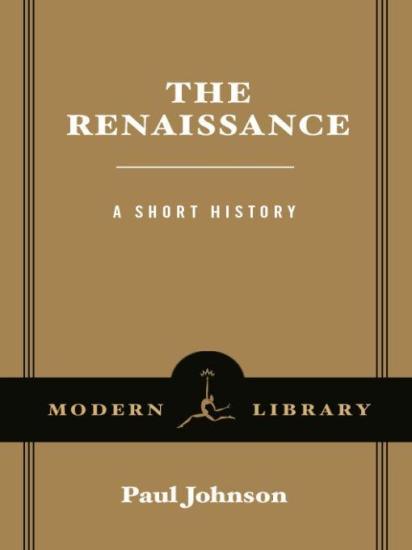
Summary:
This slim volume is among the first in a new series, the
Modern Library Chronicles, described by the publisher as
"authoritative, lively, and accessible." Noted historian
Johnson's (A History of the American People, etc.) book
satisfies on the latter two countsAit provides a serviceable
introduction for the general readerAhowever, on the first count
it falls short. Johnson offers an unimaginative and superficial
history, with insidious signs of haste, like the claim that
Charles V created El Escorial. Few will be surprised that the
Renaissance was "primarily a human event" or excited by the
pedestrian approach: dates of birth and death abound. Although
he avoids blind admiration (the Mona Lisa "shows the defects of
[Leonardo's] slovenly method of working"), Johnson is
resolutely canonical: Chaucer is one of precisely four writers
in English whose genius, he claims, cannot be rationally
explained (Shakespeare, Dickens and Kipling are the others).
Other value judgments will also raise eyebrows: Leonardo, for
instance, had "not much warmth to him. He may, indeed, have had
homosexual inclinations." Johnson equivocates on Michelangelo:
he was quarrelsome, secretive and mean-spirited, but to say he
was neurotic is "nonsense." More interesting is the remark that
the humanists were outsiders, beyond the stifling university
pale; the author evidently senses kindred spirits, and he
snipes at academia. But there is much here for the academicians
to attack, and it is difficult to see how this volume improves
on, say, Peter Burke's even briefer volume The Renaissance.
3-city author tour. Copyright 2000 Reed Business Information, Inc. --This text
refers to an out of print or unavailable edition of this
title.
Tags: [ZDC:LSDL, CNTY:UNKNOWN, ZDC:YWSJ]